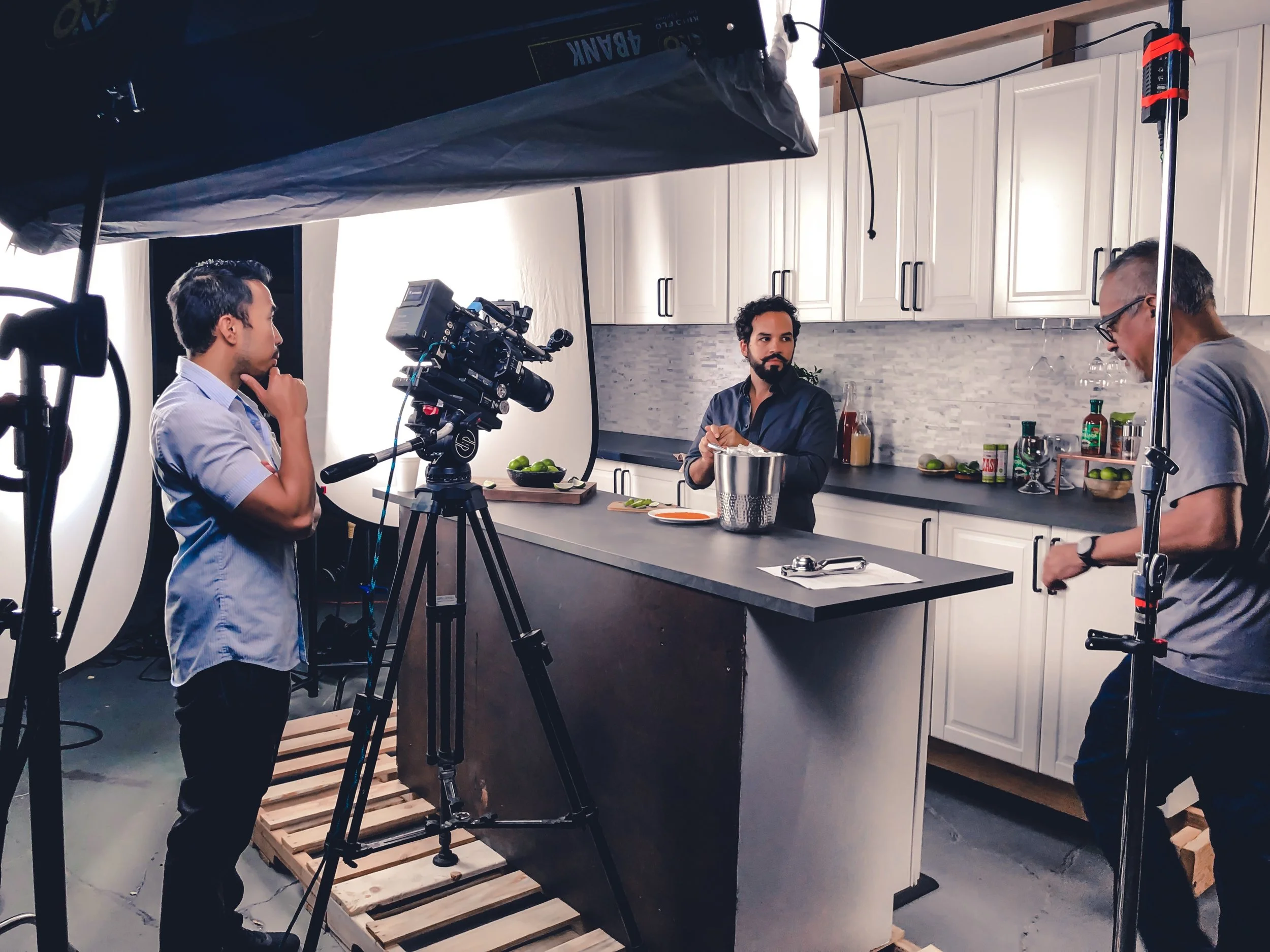If you’ve ever watched a “Behind the Scenes” segment on your favourite movie or TV show, you’ll know the amount of people involved in video production. There can literally hundreds or thousands of people involved in producing one movie, from the intern tasked with getting the director coffee, all the way up to the director himself. It can be hard to wrap your head around all the people, so we’ve compiled a list of some of the jobs most integral to video production.
Producer: Producers are involved in the whole process of production from pre-production, to on set management, and post-production. They handle more managerial and business related tasks on a film set. They are less involved in the actual technical production of the film, but rather things such as casting, budgets, and scheduling. They often are in contact with the client of the production if there is one, and oversee the day-to-day operations to ensure it is running smoothly.
Director: While producers are more involved with the business side of filmmaking, directors are on the creative side. Directors have huge amounts of influence over all aspects of production, such as script-writing, camera angles, set design, actors, and editing. Often, directors have such influence on the production that their styles of directing and vision become trademarks of the film.
Assistant Director: Assistant directors’ main jobs comes down to scheduling and organization. They keep the crew on time, the director is getting the shots they need, and often make sure that the talent is reading the correct lines during filming.
Line Producer: Line producers work with producers specifically on budgeting and tracking expenses, as well as the nitty gritty groundwork of production.
Cinematographer / Director of Photography: Cinematographers work closely with directors to carry out their vision of the production through the camera lens, and that the director is able to translate their vision through the camera. They are in charge of many aspects of, well, cinematography, such as lighting, lens selection, and camera angles.
Camera Operators: The title explains it all. Camera operators are in charge of the operation of cameras and often work directly under the supervision of cinematographers.
Grip: Grips work with the electrical department to build lighting lighting setups, as well as operating camera dollies and cranes.
Gaffer: Gaffers work with both the cinematographer and director to achieve the desired lighting and feel of the production.
Location Sound Mixer and Recorder: Sound Mixers record audio during shooting, as well and monitor and adjusting the levels of audio.
Art Director: Art directors work with both the director and production designer, making sure the set and props carry out the director’s vision for the production. They often work to keep the set on brand for the company.
Production Designer: Production designers head the effort to create and design the set, making sure the environment the talent is in matches for the right feel of the production.
Production Assistant: Usually an intern starting out in the industry, a production assistant mostly works as an assistant to the rest of the crew, such as getting coffee and taking notes. They also help in other areas, such as coordinating extras and providing crowd-control duties.
